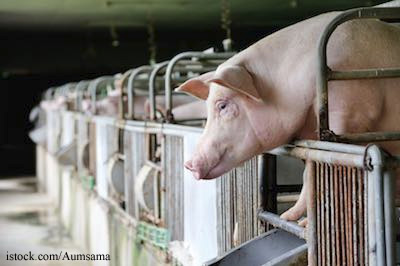A new study from Washington State University published in PLOS ONE has found that urine that comes from animals treated with third generation cephalosporin may develop resistance in the soil. Cephalosporins are widely used antimicrobial agents used in veterinary medicine, primarily to treat bacterial pneumonia in pigs and cattle, metritis and pododermatitis in cattle, and to control mortality in turkey and chicken poults. The increased use of ceftiofur, the injectable cephalosporin, has been “accompanied by a parallel increase in the prevalence of ceftiofur resistant enteric bacteria in food animal populations,” according to the study.
 The researchers found that bacteria, including E. coli and Salmonella, develop resistance to the drug within 24 hours. The excreted metabolites, or CFM, exert selection pressure for ceftiofur-resistant E. coli bacteria in the soil. This is the first study that has showed excreted CFM could be paying a role in the emergency of ceftiofur resistance in food animals.
The researchers found that bacteria, including E. coli and Salmonella, develop resistance to the drug within 24 hours. The excreted metabolites, or CFM, exert selection pressure for ceftiofur-resistant E. coli bacteria in the soil. This is the first study that has showed excreted CFM could be paying a role in the emergency of ceftiofur resistance in food animals.
The urinary metabolites degrade in the soil within 2.7 days at 23 degrees C, but “persist up to 23.3 days at 4 degrees C.” In other words, the compounds can accumulate during the colder months. This short-term persistence provides an advantage to resistant E. coli, which means that resistant strains become persistent in the soil. These strains then colonize calves who come into contact with contaminated bedding.
Researchers would like to see farmers and ranchers use improved waste management, the addition of adsorption agents to the soil, and bioremediation to solve this problem. The authors also state there should be more studies conducted on this topic. The environment could be another point of intervention to limit antibiotic resistant bacteria with engineered solutions.




